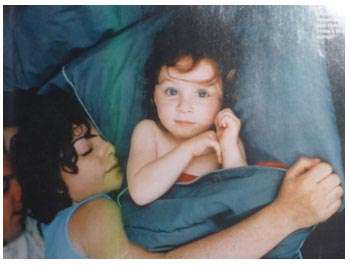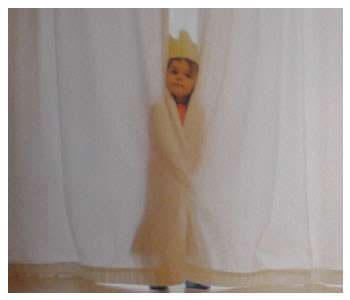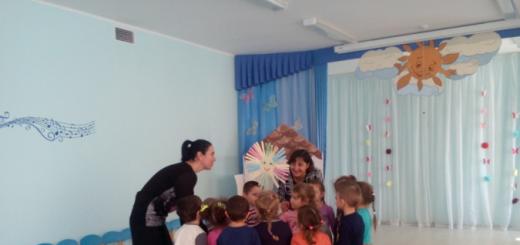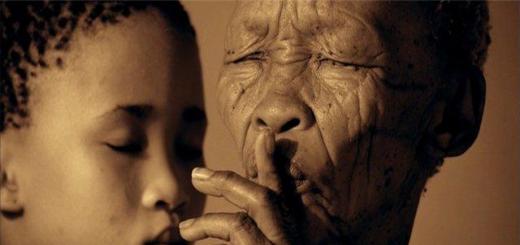By asking such a question and focusing on the word “when”, you very often confuse the girl. You almost certainly won't ask someone who bought a house two years ago when they're buying their next one. Is it true? It takes years to get used to the main changes in life, and sometimes people only need one house ... if you understand what we are getting at.
Phrase #2: "You don't get any younger"
We all age from the moment we are born and no one needs to be reminded that he is getting older. There is enough information about the youth in the mass media and gradually we all cease to be it. Nowadays, people can feel the joy of motherhood and fatherhood at any age, thanks to the numerous ways of conception. So thank you, but keep that in mind.
Phrase #3: "Your child must be very spoiled"
Why? Because he has no siblings? A good mother will always make a conscious effort to ensure that her child is not spoiled.
Phrase #4: "You can't have just one child"
Yes you can! A man himself makes decisions in matters of building his family, so you should not tell a woman what is best for her. She herself knows everything very well.
Phrase #5: "Raising two kids is easier"
You never know what the mother of one child has gone through. It can be postpartum depression, relationship problems, the poor health of her own parents.
Why two kids are better than one
The birth of a child, after all, may be the most difficult thing that she has had to endure in her life and she is physically unable to have two children.

Phrase #6: "Aren't you worried that he (she) will be left all alone when you die?"
Such a question suggests certain circumstances that a sane mother will try to exclude. The child will definitely have close friends, a loved one and children. There are many ways to not be alone in this world.
Phrase #7: “Think about what your child needs. He needs a brother or sister."
In fact, a child needs his parents to be happy, because if the parents are happy, the children are also happy.
Phrase #8: "He (she) needs a buddy"
The child is expected to have no friends, not go to school, and be alone in his room all day long. If you turn to an adequate mother with such an opinion, you will receive a serious rebuff, because mothers communicate with their children, teach them to treat people well and do everything possible so that the baby does not withdraw into himself. In addition, the word "should" is very repulsive to parents, because. no one can tell a person what he should do in relation to his child.

Phrase number 9: "If the first child disappoints you, then there is hope for the second"
This real quote from the father of three children plunges into a stupor and shock, because no matter what kind of life the child chooses, the mother will love him unconditionally.
Phrase #10: “Are you still undecided about the right time?”
This question can be said very, very inopportunely. There are many examples of this: the day after the dismissal, recovery from a miscarriage, or serious problems in relations with her husband. You cannot know what a young mother, having heard this phrase, experiences in her soul.


It is difficult to find a person who would not be interested in issues of marriage, family relations, sexual education, the birth and upbringing of children. Literature, cinema, theater, and the press often inform about these problems, raise controversial issues for discussion, and educate and educate the population. Such increased attention to population problems is not accidental. It is associated with an insufficiently high birth rate, which is explained by many social, economic, psychological and medical reasons.
How this problem will be solved in the near future largely depends on the attitude of modern youth towards it, on those who are now 18-25 years old, for whom it is high time not only to get married, but also to have children. It is in the interests of society, the state and the family itself to have several children. There are few people who would not want to have children at all.
What is wrong with a one-child family? After all, it would seem that parents will pay more attention to an only child, he will have better conditions for a comprehensive spiritual and physical development. In life, everything is much more complicated. The only child is often overprotected not only by parents, but also by grandparents. He can grow up selfish and unprepared for a meeting with the children's, and then with the school and labor collective. After all, in the team he will be evaluated according to his real abilities and merits. This is where an internal conflict can come between the overestimated idea of a spoiled child about his data and his real capabilities, which is fraught with nervous breakdowns, disappointments, conflicts.
In social terms, a one-child family leads to the so-called depopulation, that is, to a decrease in the number of subsequent generations. Even two children in a family do not provide "deputy" parents for society. After all, not all spouses have children, and more than 10% of them are barren, some even remain single for life. Demographers have calculated that in order to simply replace parents, there should be an average of 250 children per 100 married couples (at least 2-3 children per family). How to convince modern youth of the need to have at least 2-3 children?
Demographers have found that marriage has become much “younger” in recent years. Specialists in the field of social hygiene largely associate this phenomenon with the accelerated physical and sexual development of young people, which is not always accompanied by social maturity and the development of a young person as an individual and a member of society, conscious of his responsibility to him. This process is accompanied by an increase in the number of premarital sexual relations, hasty marriages leading to quick divorces, and cases of artificial termination of the first pregnancy.
How do young people feel about fertility issues?
Pros and cons of being an only child
We tried to answer this question with the help of a special survey. It showed that among the second- and third-year students surveyed, there were no persons at all who would not want to have children, and 64% of the students considered it possible to have children before graduation.
As can be seen from the data in the table, the average ideal number of Children in all groups is greater than the average desired number. In addition, the average ideal and desired number of children for second-year students exceeds those for third-year students. As regards gender differences, as in other surveys, there is a slight excess of the average desired number of children among young men. How can these differences be explained?
Psychological conditionality of the behavior of married couples >>>>

"One? He will be miserable! You must have brothers and sisters!” - even if until now you were sure that your baby will be the only child in the family, such words can cast doubt on your plans. You begin to wonder if it's really right to have only one child, how it will affect him, whether the absence of brothers and sisters will harm the child. In practice, being the only child in the family means not only putting up with the minuses, but also having some advantages.
What are the disadvantages of a child who has no brothers and sisters?
1. There is no partner for games.
2. Difficulties in maintaining contacts with peers.
If the parents do not see the need to teach the child to communicate, the only child may eventually feel the hardships in his own skin in relationships with others. He does not know how to give in, to adapt to the needs of others, which leads to rejection by the group, and, of course, to suffering.
3. High expectations of parents.
An only child has a harder time when it comes to mom and dad expectations. Even if expectations are not high at an early age, later the child will meet them. An only child is "the only chance". The child should bring the best grades, be the most respected in the class. However, parents will more easily accept the shortcomings of the child if he is not the only one in the family. If one child fails, there is hope for the second.
4. Overprotective parents.
The youngest child always seems small to parents, regardless of age. The only child will always be the youngest, so you have to put up with parental overprotection. As a result, the child is kept in a cage, because of which he suffers greatly.
5. Caring for parents in old age.
Few people think about this disadvantage of being the only child in the family. This topic will only be relevant in late adulthood and will deal with issues of caring for elderly parents. No one will be able to share responsibilities or at least support such a child financially. The only child has to take over.
Being the only child in the family is not so bad
After reviewing the list of cons, it may seem to you that being an only child means being unhappy. This is not true.
Second child - when will it be on time?
The absence of brothers and sisters is also a whole range of advantages.
1. Be the center of attention of parents.
The absence of siblings means that there is no need to fight for the attention of mom and dad, all their attention is focused on only one person. Mom always (or almost always) reads fairy tales to you, because at that moment she does not feed the baby, dad turns a blind eye to minor misconduct. There is also no comparison with a brother or sister.
2. Financial benefits.
It is obvious. An only child has everything or almost everything. Better clothes, better toys, more fun activities and super vacations. This, of course, is a bit of an exaggeration, but there is no doubt that the only child has more.
3. Absence of conflicts.
You can find advantages in conflicts between children, but this does not negate the fact that they are simply unpleasant for both parties. An only child doesn't fight with a sibling over broken toys, clothes, and more.
4. No need to look after others.
Less and less often the difference in age between children is only a year or two. Often parents wait several years to give birth to a second child. This means that subsequently, the care of the younger will partially fall on the shoulders of the elder, and this complicates life, forces you to change plans and leads to conflicts with parents. All this does not threaten the only children.
Conclusion
You can, of course, look at having another child in terms of benefits for the first child. But this should not be the most important criterion. First of all, we must consider whether we, the parents, want another child. Because everything else, as shown above, has its pros and cons.
There can only be TWO better than one!
Home>>Children & Family>>Preschoolers>>Part 2>>One child per family
One child in the family
Raising an only child in a family
 In Russia, 60% of families raising an only child in the family. It is widely believed in society that one child in the family grows up to be a spoiled child. This statement is not always true. But, of course, his development and life are not the same as for other children who have brothers and sisters.
In Russia, 60% of families raising an only child in the family. It is widely believed in society that one child in the family grows up to be a spoiled child. This statement is not always true. But, of course, his development and life are not the same as for other children who have brothers and sisters.
A hundred years ago, one child in a family was a rarity. And since that time, a strong opinion has been entrenched in our society that the only child is an egoist, spoiled and not adapted to life.
Many of these statements were confirmed by the Austrian psychologist Alfred Adler in the 1920s. He argued that the only children in the family had communication problems. In addition, the mental development of preschool children who have no brothers or sisters "slows down" at the moment that everyone is running around them and the whole world is spinning for them.
After 30 years, the French psychoanalyst Francoise Doltot concluded that the only child in the family can be successful in getting an education, but as far as social life is concerned, such children are completely unsuitable for it, because, for the most part, they have poor contact with those around you.
Still, this is a rather difficult test - to be the only object of love of your parents. Parents focus all their attention and their love for the child on him. How to make sure that the special privileges of an only child do not do him a disservice in later life? This will depend on the behavior and attitude of the parents themselves.
In most families, one child grows up with a strong sense of security in the family circle. He knows that his parents live and love only him. What could be more beautiful in childhood? But, according to the child psychoanalyst Anna Skavitina, feeling themselves omnipotent and invincible in the family, outside of it, the only children feel insecure and are afraid that they will not succeed, because they do not feel the usual support of their parents.
If these fears and insecurities continue into adulthood, they can greatly complicate life, becoming a strong obstacle both psychologically and socially.
So many parents turn their overprotection into global control. They control every step of the child, no matter where he is. For children themselves, such attention is unpleasant and they are embarrassed in front of others. In addition, such children, as a rule, do not like team sports. Those. those types where close interaction with other children is required.
 One child in a family may have the illusion of equality with their parents. For example, if the child is a girl, then she is dressed like a mother, her gait is also the same with her mother, and they chat incessantly, like two best friends. Interestingly, often the mother herself in this case perceives the child as an equal, saying: "This is my little sister." And this girl says: "My best friend is my mother." Those. in such families, the division into parents and children is very, very conditional.
One child in a family may have the illusion of equality with their parents. For example, if the child is a girl, then she is dressed like a mother, her gait is also the same with her mother, and they chat incessantly, like two best friends. Interestingly, often the mother herself in this case perceives the child as an equal, saying: "This is my little sister." And this girl says: "My best friend is my mother." Those. in such families, the division into parents and children is very, very conditional.
One, two, five? Why having many children is good
But is such a relationship necessary and will it be useful for children?
Every child should have friends with whom you can communicate, play, visit each other. If the parents in the family play the role of friends, then who will play the role of parents? According to child psychologist Alexander Wenger, a child needs to see parents as examples of adult behavior and attitude to life.
Of course, the only child in the family goes through the path of psychological maturation earlier, participating in the affairs of adults. But, on the other hand, early psychological maturation can become an excessive burden for the child. If the child lives in an incomplete family (most often with his mother), then the situation becomes even more difficult. According to psychologist Galina Burmenskaya, a woman in the family focuses all her attention on the child and actually fences him off from the outside world and, above all, from his peers.
What problems can expect such a child in the future? If the child is a boy, then he will hold on to his mother even in adulthood. As Anna Skavitina says, in such a situation, the boy is, in fact, married to his mother from birth. Naturally, it will be difficult for him to create his happy family. After all, no woman can compare with his mother.
Girls may have problems of a different kind. Having become like her mother, the girl becomes, in a way, a mirror of her mother. According to Anna Skavitina, in adolescence, such a daughter and mother become real rivals. In order to gain independence and free herself from the care of her mother, a teenage girl cannot find any other way than open conflict in the family.
Very often, parents tend to send their only child to school early, because. such children, as we said earlier, develop psychologically earlier and can be very successful in learning. But you shouldn't do it. After all, as we noted earlier, these children are more difficult to contact with others. School is a new level of relationships and for an only child, this can be a difficult test, especially since he will be the youngest in the class.
Why do many couples choose to have only one child? Perhaps this is due to the health of a woman or a man in the family. And, perhaps, someone, entering into a remarriage and giving birth to the first child in the family, does not want more children, because. They also have children from previous marriages. Most parents are simply afraid to have a second child, or they are just too lazy. After all, you need to be responsible for it. And a lot of time is spent on the care of khanim and his upbringing.
Should parents explain to an only child why they decided that he would not have brothers and sisters? Yes, it would be right to discuss this point with them. Especially if the child himself asks about it. Such a conversation will calm him down and put everything in its place. After all, often such children want to be an ideal for their mom and dad.
Tatyana Sheveleva (Taganrog, Russia)
Recently, there has been a clear trend to have one child in the family. Various circumstances contribute to this. And not in all cases, the main reason is a difficult financial situation or an unresolved housing issue. Many parents believe that one child in the family is more psychologically comfortable, since he has no reason for jealousy, he will not have to share his favorite toy, treat, attention with his brother or sister. However, the presence of an only child in the family, in addition to demographic problems, entails a complex of socio-psychological problems associated with his individual upbringing in the family. Surrounded by excessive household attention, the only child, as a rule, grows up selfish and capricious, especially in wealthy families.
According to Titarenko V.Ya., the problem of only children in a family begins long before their birth and, as a rule, is associated with the social environment in which their parents grew up. Sociologists note that the higher the cultural and intellectual level of parents, the fewer children are born in these families. The birth of one child is the basis for the disappearance of a nation, since only with two children can a more or less stable character of national reproduction be preserved. Thus, in the phenomenon of an only child, society is faced with a demographic paradox: the higher the cultural level of a society, the faster it ages and vice versa.
One can hear the opinion about only children that they grow up selfish and, in general, lag behind in social development from their peers who grow up with brothers and sisters. However, these conclusions are based on studies of the early twentieth century. Modern studies show that there is no significant difference in the level of development and personal characteristics between the only children in the family and their peers.
According to Yu.P. Azarov, the problem of material support in the family, as a rule, is aggravated with the birth of a child, which requires more expenses than in its absence. The lack of the necessary amount of money often changes not only the relationship of spouses, but the relationship of children and parents. Their relationship is not always so cloudless. Financial disadvantage, as a rule, is accompanied by a decrease in attention to the child, due to the employment of parents at work, and as a result, the child in such families becomes left to himself and the street.
The situation of upbringing in families with several children and with one child is seriously different. Parents of an only child face particular challenges and associated risks that parents need to consider in their upbringing. Overprotection, limiting interaction with peers, high expectations, making too many decisions for the child, etc. - all these are typical mistakes in raising an only child.
The only child ahead of time finds himself in a less favorable situation in terms of social development. Indeed, before entering kindergarten, or even school, he communicates mainly with adults. Even the vocabulary of such a baby is saturated with "non-childish" words and terms, he often does not understand children's humor, teasers, etc. Of course, it is not easy for such a child to adapt in a children's team, often in a group of children he prefers to play alone. A child who does not have sufficient experience in communicating with peers very often does not know how to play role-playing games. But it is precisely such a game that is the main tool for social and emotional development in preschool age. When playing with parents, the child does not receive the necessary feedback, he will quickly feel false, because rarely any adult can devote himself to the game so sincerely as a child. Psychologist Lepeshova E.M. characterizes such a situation as "a child is a small adult".
The child learns well the relationship model in which one is higher in the hierarchy (parent) and the other is lower (child). One way or another, one obeys the other. In the children's team, it is required to build fundamentally different relationships - relations of equals, relations of cooperation. Often, from the inability to build partnerships, the child "jumps" to another, simpler option - competitive relations with other children.
This situation can lead to the fact that in the children's team the child will either become a "loner" or will in every possible way oppose himself to the team, attract the personal attention of an adult (teacher, educator). It is very difficult for a child in such a situation. These relationship difficulties can persist into adulthood. In such cases, psychologists advise giving the child the opportunity to communicate more with peers. Admission to kindergarten is often a major stress for single children, because it is the first time he finds himself in a large group of the same kids, without the close adoring attention of parents. However, it is the kindergarten that allows the child to compensate for the peer environment that he lacks at home.
Usually children during the first year are fully mastered in the new rules. Kindergarten becomes for them the first real school of life, where they learn to make friends, care for and help others, argue and put up. It is very important for parents to discuss with their son or daughter situations that arise in kindergarten, to help find the right solutions in relationships with other children. It is not always possible to take a child to kindergarten for various reasons. In this case, it is important to find other ways to communicate with peers.
Another situation arises when families with an only child become, as psychologists call it, “child-centered”. This means that the whole Universe of the family revolves around one center - the child. This situation is aggravated if the child is late and long-awaited.
One child is good, but two is better?
If there are several children in the family, they, one way or another, form their own community, the attention of parents is inevitably divided between them. The only child in the family, at least, is constantly in sight, often they are more worried about him, worried. While the two brothers rush around the yard and stuff bumps, the only son is often “laid with straw” and shakes for every movement. The situation is obvious: the child is the center of the universe.
This child-centeredness gives him more opportunities because it is easy for parents to provide for an only child, including giving him a good education, more time for classes and just talking with the child. As a result, the baby feels safe, surrounded by care and attention. On the other hand, if with the growing up of the child, this level of care and guardianship is not removed, the following occurs. A child who feels safe in the family feels increased anxiety and fear when entering the "outside world".
There is another possible negative factor. This parental care and attention the child naturally takes for granted. At the same time, he himself usually does not have to take care of someone. As a result, he simply does not have such experience, and he, of course, is necessary for building relationships with people, for building his family. In addition, at the same time at school, it can be difficult for a child to accept the need to share the teacher's attention with other students. He can be naughty, naughty and in other ways to attract attention. Cases of psychosomatic diseases are not excluded - nausea, abdominal pain, dizziness - all this can become a reason for attracting such familiar care and attention. The reason, of course, is unconscious, just the reaction of the body. The pride of such children becomes painful: the lack of close attention from adults means for the child that he is bad, that he is doing something wrong.
The only children spoiled by parental attention often perceive their parents as their property. While mom or dad is working with him, the baby can be perfectly accommodating, as soon as they talk to each other or go about their business, the child begins to act up, attract attention to himself, scream in all sorts of ways. Thus he shows jealousy. As a result, parents find themselves in a difficult situation: they cannot go about their business, they cannot calmly talk on the phone in the presence of a child. In such situations, psychologists suggest decentering family relationships.
It is important to understand that single reactions cannot resolve the situation. Parents should initially build relationships in the family in such a way that the child understands that parents are separate people who have their own important affairs and concerns, except for the child. The child must understand that
there is also a relationship between mom and dad, and not just between each of them and the child.
It makes sense to control the level of care and guardianship. Sometimes it is better to let the child fill the bump himself, falling down the hill, and not follow him around, warning him of danger. It is not necessary to keep the child in "greenhouse conditions", he must be aware of the diversity and complexity of the world, so as not to feel it is centered on himself. Well, the recommendation to organize the communication of the child in the children's team also remains relevant.
There is another risk of the most typical mistakes for single-parent families with an only child, although it also occurs in complete families. It is quite common for a child and a parent (more often a mother) to become best friends. You can hear how the girl says that she and her mother are “best friends”, you can also see boys who are very attached to their mothers. Adults often solve their own personal problems due to such friendship, while the child is ready to accept any model of relations provided by the parent. Of course, this is not the worst model of child-parent relationships, but still far from the most optimal. Firstly, in such a situation, the child no longer needs to find friends among peers, the child closes in the parental family. It is clear that in adulthood this will cause great difficulties when the time comes for separation from parents and the creation of a family.
Secondly, such a situation leads to the fact that the child loses the authority of the parent, which he, in fact, badly needs. He does not receive a sample of "adult behavior."
Everything described does not mean that it is impossible to be friends with your own child, it is possible and even necessary. However, it is important to observe the line, it is important to remain a parent for the child (while he is still a child). An adult should have his own adult issues that he decides without the participation of the child. An adult must dictate certain norms and rules, broadcast moral norms, family traditions, etc. As for the levers of influence on the child, in a large family, brothers and sisters usually teach each other something. The influence of brothers and sisters, practically peers, is much more significant in adolescence than the influence of parents. A family with an only child is already deprived of such an opportunity. It would be nice if the child was friends with older cousins or sisters, other relatives. After all, family friendship is a special friendship.
Thus, the upbringing of an only child in a family is much more difficult than the upbringing of several children. The problem of a family with one child, as a rule, lies in the social environment in which he develops and on the level of his upbringing. There are no ready-made recipes and parenting models that you can take without changing and apply to your child. However, it should be noted that the main grounds that must be followed when raising a child during his family life are purity, consistency in words and deeds when dealing with a child, the absence of arbitrariness in the actions of the educator, recognition of the child's personality. The secret of family education lies in enabling the child to realize himself independently, to treat him with full recognition of his personality and the inviolability of this personality.
Literature
Azarov Yu.P. Family Pedagogy. St. Petersburg: Publishing house "Piter", 2001. - 400 p.
Lepeshova E.M. How to avoid parenting mistakes. St. Petersburg: Publishing house "Rech". - 2010. -156 p.
Titarenko V.Ya. Family and personality formation. M.: Publishing House Thought - 1987. -356 p.
Supervisor:
candidate of pedagogical sciences, Puilova Marina Alekseevna,










